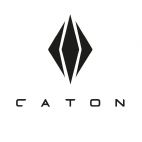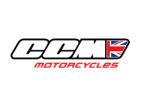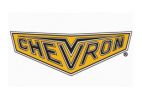
Caton is an all-new luxury British brand brought into existence from a desire to revive and celebrate British icons. Caton intends to do this by using state of the art technology that its strategic partner, Envisage Group, houses under the roof of its Coventry home.
Caton is born out of a passion for design and precision engineering, and to showcase the skill and capability of the very talented engineers and craftspeople within Envisage Group. Caton is here to loudly and visibly celebrate the skills and expertise of a company that can rarely publicise the work that it does for OEMs. Caton isn’t however, just an automotive brand.
Healey by Caton (a modern interpretation of the iconic Austin Healey 100/4) is the first product to showcase all the specialist skills and expertise that future customers will have at their disposal. Caton will curate and reincarnate selected icons of the past with the same sympathetic style, finish, and quality embellishments that you see on Healey by Caton. Caton’s projects won’t be limited to cars and the automotive sector, but could dive into furniture, jewellery, timepieces, or any manner of luxury icons that could feel the benefit of Caton’s in-house design and precision crafting skill.
J.M.E. Healeys (J.M.E.) is the technical partner of the Healey by Caton and undertook the work on the engine. With a history dating back to the inception of Austin-Healey, J.M.E.’s knowledge of this iconic British marque is second to none.

1970 and a keen motorcyclist, Alan Clews, had no ambition to become a motorcycle manufacturer. He worked hard through the week for his wife’s family’s chain of newsagents whilst constantly looking towards the weekend, when he would compete in trials and scramble events.
It was only when his request to purchase a works BSA scrambler was rejected that he decided to build his own competition bike; such was the success of his efforts, that news travelled fast, demand for his services grew and Clews Competition Machines was born in 1971. The letters CCM would become synonymous with multiple successes in motocross, flat-track, trials, supermoto and road racing competition at the highest level.
Alan Clews sadly passed away on May 2nd 2018. His eldest son, Austin, himself a champion motocross rider, now fronts the British manufacturer alongside brother in law Gary Harthern and supported by younger brother Russell and sons Ben and Jack.
The firm is still based in Bolton, Lancashire and with the success of the super lightweight GP450 Adventure bike, now discontinued, behind them, they currently manufacture their highly regarded eight model Spitfire Series.

Charge Automotive is a British company based in London. Their team has extensive experience in the development of luxury and high performance vehicles. Their engineers contributed to various EV projects for Williams F1, McLaren Automotive, Jaguar Land Rover. Moreover, they are passionate about eternal automobile classics
They redefine great classic cars with advanced electric technology while preserving their iconic design and believe in an emission-free future while giving ultimate performance to epic autolegends. They work in intensive collaboration with recognised industry leaders like EV technology company Arrival, the world’s first AI racing platform Roborace and tyre manufacturer Michelin. That brings to their products the most advanced technologies and components including motors, power electronics, battery systems, intelligent software and stunning user interfaces.
After considerable design and development work, they have launched their Mustang EV, based on Ford's iconic 60s classic muscle car.*
* “Ford” and “Mustang” are registered trademarks of Ford Motor Company. Charge Automotive Ltd is not connected, sponsored, approved, endorsed nor, in any way, affiliated with the holder of these marks.

Since 1990, when they took over the the Street Beetle project, the Chesil Motor Company has undergone several changes of ownership, but throughout the intervening years have produced over 500 examples of their highly regarded 365 Speedster replica in both kit form and factory built, both for the UK and overseas markets.
After a period of low volume activity Chesil is now in the capable hands of Westfield Sportscars and the Speedster will join their established line-up of Seven style cars and highly innovative autonomous pods. Production will be centred on Westfield's existing premises at Kingswinford in the West Midlands, under the stewardship of MD Simon Westwood.
Apart from the the conventionally powered Chesil Classic, the new fully electric Chesil E will join the range.
Mark Bowen of MB Insolvency was appointed as Administrator of Westfield Sports Cars Limited and Westfield Autonomous Vehicles Limited. Mark Bowen is licensed to act as an Insolvency Practitioner by the Insolvency Practitioners Association. The affairs, business and property of the Companies (in Administration) are managed by the Administrator, who acts as an agent of the Companies and without personal liability. Creditors can contact the Administrator’s office at information@mb-i.co.uk.

Chevron Racing was originally founded by the late Derek Bennett in Salford in the 1960's. He is generally acknowledged to have been an engineering genius, as well as an accomplished racing driver, and was responsible for designing and building several legendary Chevron racing cars which enjoyed enormous success in many national and international race categories throughout the late 60's and 70's. Indeed, as many as six well known racing drivers who used Chevrons regularly went on to become F1™ world champions, including Nikki Lauda and Alain Prost.
Today 'the legend lives on' and the Chevron brand is now owned by WDK Motorsport, who are well-known in the world of classic racing car preparation. They build Continuation models of both the Chevron B8 and B16 and operate out of their premises in Stockbridge, Hampshire. However, they have all the necessary drawings, patterns, jigs and body moulds to manufacture continuation models of the entire range of Chevron sports cars from 1968 onwards, including: B8, B16, B19, B21, B23, B26, B31, B36 and B61.





